Reviews
Ridley Scott
USA, 1982
Credits
Review by Rod Bastanmehr and Michael Nordine
Posted on 31 January 2011
Source Warner Bros. DVD
Categories Blind Spots
It’s too bad she won’t live! But then again, who does?
Introduction by Michael Nordine
I first saw Blade Runner on the last day of my sophomore year of high school. My reaction: bewilderment. The friend with whom I watched it and I were both perplexed by the the apparently-classic film we’d just seen and, contrary to our expectations, neither of us was particularly taken by it. Disappointed, I quickly put it out of mind. It wasn’t until five years later, when I re-watched the film alone in my room on a dark winter day, that I understood something which hadn’t resonated the first time around. I was studying abroad in Copenhagen, and some combination of my advanced age and the near-constant gloom of Scandinavia had instilled in me the requisite mindset to appreciate Blade Runner for what it is: a strange melding of science fiction and neo-noir sensibilities whose now-revered status is better deserved than most.
The film’s mostly-dark palette is offset by the neon glow we’ve come to expect from the future, dystopian or otherwise, and I have lately begun thinking of Blade Runner as a spiritual predecessor to the Children of Men branch of sci-fi insofar as it represents the genre at its most conceptual yet relevant. For all the discomfort it elicits, Ridley Scott’s third film is ultimately defined by how familiar its strangeness feels—films of this sort are most effective when their out-there visuals are anchored by a daunting air of plausibility. So in a way, I’m envious of Rod - whose review you’re about to read - just as I am of anyone yet to see this film; they get to witness Rutger Hauer’s rooftop monologue for the first time, unspoiled by foreknowledge of his iconic last lines. Too, they get to experience what is perhaps the finest effort in both Harrison Ford and Scott’s filmographies. (It is difficult for me to call almost anything better than Alien, but I sometimes think Blade Runner may well be.)
And yet one’s response to the movie no doubt depends on which of its many versions one sees, markedly different as its three main iterations are (to say nothing of the other four). Apropos of the way it delves into what makes something “real” or not, this only serves to further muddle and enhance Blade Runner’s unique legacy. In oscillating between a theatrical, director’s, and “final” cut, it’s a film whose only true home is the one it has carved into its viewers’ collective psyche.
Review by Rod Bastanmehr
How are we to look back at a film that looks forward? I found myself playing games of time travel too often during my first screening of Ridley Scott’s seminal science fiction classic Blade Runner, constantly comparing the act of watching now to what it must have been like to watch upon its original release.
Nowadays, there is hardly a depiction of the future that doesn’t seem to have absorbed some of Scott’s sweat. The future, once chrome-covered and infused with promise, was suddenly, during the highs and lows of Reaganomics, a place of squalor. The buildings don’t shine, it rains too often. The streets are crowded, yet in a larger sense emptier than ever. For Scott, the future was suddenly something to fear, mostly because the seeds were being sown just as his cameras began rolling. Blade Runner may take place in 2019, but it reeks of 1980s paranoia.
A neo-noir of the highest order, Blade Runner has such a firm grasp on mood and atmosphere that it’s curious that the film is so suffocating. It is a cold film, paced with the pretense that we empathize with its characters, some of whom (the Replicants) are not descriptively human. Instead, they seem to represent something else—a comment Scott seems to think he’s making so well that he doesn’t even really need to say what the “something else” is. I can feel the dynamism of a larger plan, that the Replicants believe so strongly they’re human that we should question why, precisely, they aren’t. But I found nothing from them that evidences any emotional “realness.”
So what happens when a film muses on the essence of living, and its characters prove too lifeless? I found myself unable to feel anything but anxiousness for Harrison Ford’s Deckard, who, eternally rain-soaked, finds himself racing Batty, a Replicant leader who is coming into an emotional awakening just as his “termination date” looms. These two characters come to a head, but nothing matters. And when perhaps the film’s most powerful piece of dialogue comes - as Batty reflects on the life that will now be resigned to non-existent memory - I felt nothing for the android who is only human because he tells us he is.
But my jaw drops at the realization that the “vision” of Blade Runner has managed to not simply withstand the test of time but to improve with age. And where its special effects could easily be its selling point, Scott’s world is textured, nuanced, boiling in neon glow. He’s taken the dreamscape of Fritz Lang’s Metropolis and melded it with the claustrophobia of Robert Aldrich’s Kiss Me Deadly. Never have skyscrapers looked more like tombstones. The “what” of the film seems to be mostly infused in its “where.” Its world - which reeks of a capitalist wasteland (though I’m almost positive its inhabitants like it that way) - feels so fully formed that we require no backstory, no justification for why things are the way they are. When the plot lags, its setting takes hold.
However, as with all films so praised, I feel a twinge of sadness that I’m so far removed from the popular consensus. But it’s hard to feel guilt for denying the pleasure of a film that’s seen so many re-edits. Now notorious for its seemingly endless barrage of re-releases (the most recent of which has been named, perhaps prematurely, The Final Cut), I find faults with a film that has no definitive edition to reflect on. For this piece, I watched the 1982 International Theatrical Cut, choosing the view the film in its original theatrical format, but bumping myself up to more European sensibilities. This includes the often in-and-out voiceover, which I found trite and simplified, but a worthy homage to the film’s noir-roots.
Blade Runner is not a perfect film—with over five different cuts of it floating around, it can’t be. But somehow its impact has come to suggest that it is without faults. A film can last, linger, and change the landscape of cinema forever, and it can do so while being flawed. Perhaps I will revisit the film’s multiple other formats, and perhaps they will elevate the film beyond its technical innovations. But this doesn’t alter my primary concern, and one that ironically the film focuses on: what is our perception of “the real” and what does that make of our memory? Does a man deemed droid suddenly have no history to look back on, and remain critical of, to question? Does a film with no single official version require us to alter our perception, our opinion, our awe?
More Blind Spots
-

Pee-wee’s Big Adventure
1985 -

The Matrix
1999 -

Amélie
2001 -
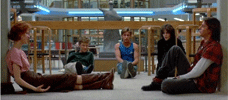
The Breakfast Club
1985 -
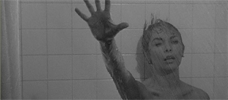
Psycho
1960 -
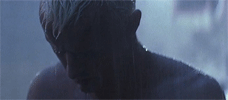
Blade Runner
1982 -

Chinatown
1974 -
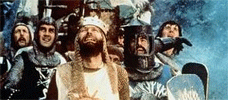
Monty Python and the Holy Grail
1975 -

Rocky
1976 -
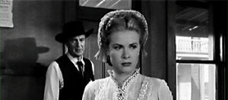
High Noon
1952 -
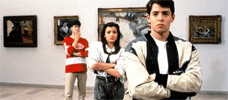
Ferris Bueller’s Day Off
1986 -

Taxi Driver
1976 -
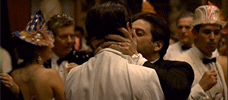
The Godfather
1972 -
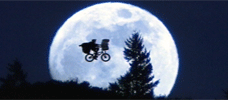
E.T.
1982 -

Pulp Fiction
1994
We don’t do comments anymore, but you may contact us here or find us on Twitter or Facebook.



